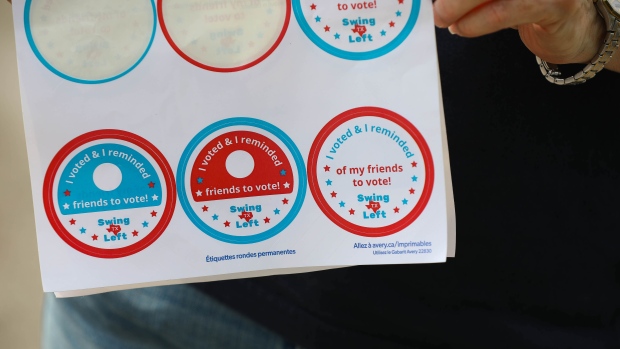Jun 26, 2020
Supreme Court Rejects Call for Universal Vote-by-Mail in Texas
, Bloomberg News

(Bloomberg) -- The U.S. Supreme Court refused to force Texas to allow universal vote-by-mail because of the coronavirus outbreak, rebuffing state Democratic officials and a group of voters who said their constitutional rights are being violated.
The justices, with no noted dissents on Friday, declined to reinstate a trial judge’s order that would have let any Texas voter request an absentee ballot to avoid the risk of contracting Covid-19 at the polling place. Texas law lets people 65 and older vote by mail for any reason but requires younger voters to have an excuse.
The Supreme Court action comes as Texas deals with a spike in coronavirus cases and a primary runoff election currently scheduled for July 14.
Voting by mail has become a sharply partisan issue amid President Donald Trump’s unsupported contentions that it will lead to widespread fraud in the November election. Texas’s Republican governor and attorney general have resisted allowing wider use of absentee ballots in the state.
The Texas Democratic Party, its chairman and three voters argued that the vote-by-mail restrictions violate the Constitution’s 26th Amendment, which extended the franchise to people 18 or over and says the right to vote “shall not be denied or abridged by the United States or by any state on account of age.”
The Democrats argued that voters under 65 shouldn’t have to choose between risking infection and relinquishing the right to vote. Texas Governor Greg Abbott and Attorney General Ken Paxton contended that state officials are working diligently to make voting safe and that the 26th Amendment doesn’t confer a right to vote by mail.
The New Orleans-based 5th U.S. Circuit Court of Appeals put the trial judge’s ruling on hold on June 4.
The Texas primary runoff was scheduled for May 26 before Abbott postponed it until July 14 because of the virus. The deadline for vote-by-mail ballots to be received is July 2.
The case is Texas Democratic Party v. Abbott, 19A1055.
©2020 Bloomberg L.P.







